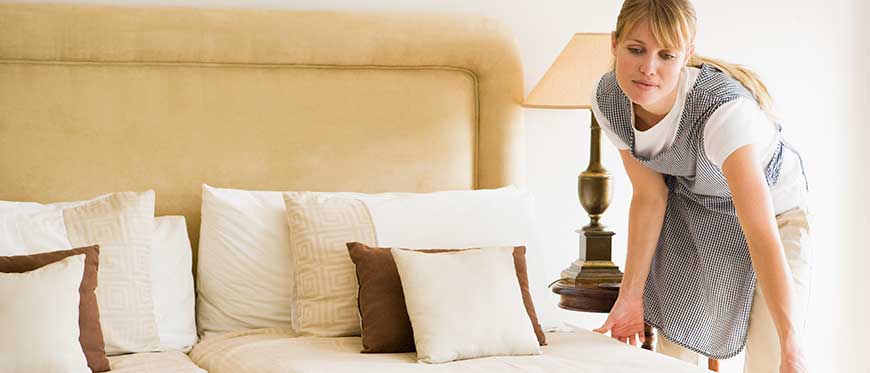Disruptive business models are all the rage — and none has caused more industry rage than Airbnb. The hotel industry is in the midst of a multi-million-dollar effort aimed at regulators and consumers alike, looking to get shared accommodations to play by the rules, and consumers to realize what it means that they’re not.
Even as that effort starts to show results in new regulations cracking down on sharing services, such as those in New York and Chicago, legal action may not be the real threat to the long-term health of sharing services. As Airbnb’s own research starts to show its growth slowing, one concern is increasingly coming to the fore — the well-being of guests, as evidenced by their concern with reliable comfort, security and cleanliness.
As one reporter from TechCrunch put it, “Essentially, when you choose to stay in an apartment, you are making a gamble … To be clear, I love Airbnb. But when every pillow provided looks soaked in every body fluid imaginable, hotels seem appealing.”
It’s time for sharing services to come clean
Airbnb users are, obviously, internet users — so when leading online opinion leaders like TechCrunch and the Huffington Post take you to task, it’s time to rethink your approach. One HuffPo author put it this way: “Rentals are rarely inspected by the companies that list them, and it’s up to each host to ensure that standards are met,” leading to his advice that Airbnb guests “Wipe down surfaces…influenza virus can survive on nonporous surfaces for up to 48 hours.”
Airbnb (whose own research shows that its growth is slowing) is taking note, and recently launched Airbnb Plus, a new platform where “properties must meet a more than 100-point checklist covering cleanliness, design and comfort.” Good intentions — and public relations efforts — notwithstanding, this is an acknowledgement that the vast bulk of Airbnb accommodations aren’t up to professional standards (and likely won’t raise their standards, due to the extra fee imposed to be listed on Airbnb Plus).
It’s also time for hotels to press their advantage
Even as some Airbnb hosts aim to become virtual hoteliers themselves, managing multiple properties for the sole purpose of short-term rental, most can’t compete with hotels operationally or financially. That’s why it’s time for hotels to push their operational and promotional advantages:
- Promote cleanliness efforts the industry may take for granted. For example, if a hotel group periodically replaces pillows, to ensure they stay clean and comfortable, that should be promoted, whether in a note left on the pillows or other means.
- Make commitment to cleanliness more tangible. Guests notice dirt, but take clean for granted. Hotels can create an image of “cleanest accommodations,” by going a little above and beyond the norm. For instance, hotels can provide disinfectant wipes in rooms, encouraging their use on doorknobs, remote controls, etc.
Opportunities to take the “healthier high ground” abound. Whatever the cleanliness, comfort and safety initiatives taken, now is the time for the traditional hotels to seize that high ground and actively defend it against the sharing economy — or risk losing their own share.
Sources
Dirty Pillows: The Unsolved Problems of Sharing Services – Tech Crunch
Six Health Risks of Staying in Someone Else’s Home – Huffington Post
The Hotel Industry’s Plant to Combat Airbnb – New York Times
Airbnb growth story (with a twist) – Skift.com
Airbnb to vet cleanliness, comfort of properties on new platform – Chicago Tribune
